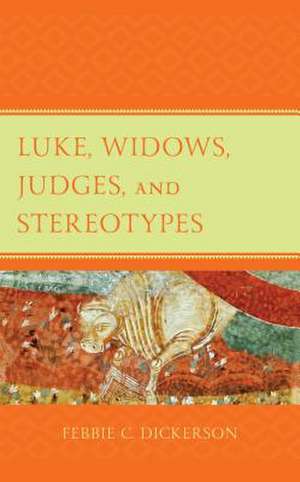LUKE WIDOWS JUDGES AMP STEREOTYPCB: Womanist Readings of Scripture
Autor Febbie C. Dickersonen Hardback – 31 iul 2019
Preț: 685.85 lei
Preț vechi: 890.72 lei
-23% Nou
Puncte Express: 1029
Preț estimativ în valută:
131.28€ • 142.65$ • 110.35£
131.28€ • 142.65$ • 110.35£
Carte tipărită la comandă
Livrare economică 21 aprilie-05 mai
Preluare comenzi: 021 569.72.76
Specificații
ISBN-13: 9781978701236
ISBN-10: 1978701233
Pagini: 230
Dimensiuni: 152 x 229 x 23 mm
Greutate: 0.52 kg
Editura: Rowman & Littlefield
Seria Womanist Readings of Scripture
ISBN-10: 1978701233
Pagini: 230
Dimensiuni: 152 x 229 x 23 mm
Greutate: 0.52 kg
Editura: Rowman & Littlefield
Seria Womanist Readings of Scripture
Notă biografică
Descriere
In a womanist reading of Luke 18:2-5, Dickerson recasts the widow and the judge through stereotypical representations of African American women and men to illustrate how generalizations about widows and judges affect how readers interpret the parable. In doing so, she provides new interpretative and liberative readings of the widow.
